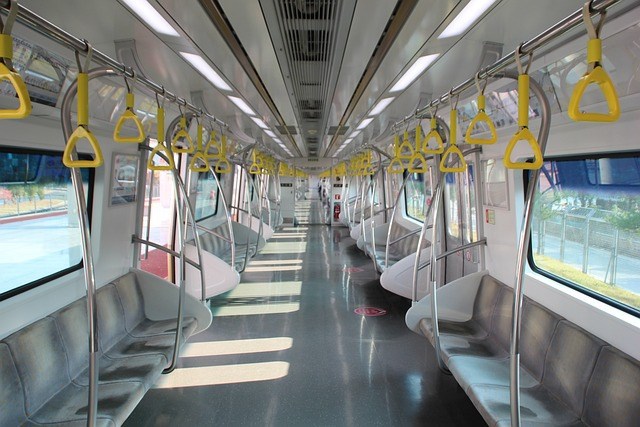Even as gas prices are due to jump eight cents a litre in a cruel non-joke on April 1, and the federal government has mandated that 60 per cent of all new vehicle sales in Canada will need to be electric by 2030, Town of Cochrane administration has told council they are not pursuing the idea of electrifying the bus fleet in the foreseeable future.
The recommendation came Monday night (Mar. 18) at a Committee-of-the-Whole meeting.
The Town of Cochrane initiated a planning study in conjunction with the Canadian Urban Transit Research & Innovation Consortium (CUTRIC) in 2022 to explore the potential electrification of Cochrane On-Demand Local Transit (COLT).
The gist of the presentation from CUTRIC was that although they have researched the idea, since Cochrane’s administration is in the midst of a separate long-term transit study it may not be the right time to delve any further into the topic until the local research is complete.
So the CUTRIC work is still valuable and could serve to inform the decision-making process down the road.
CUTRIC is a non-profit organization, specializing in technological and financial knowledge, innovation, and consulting with regards to decarbonized and autonomous public transit systems.
Financed partly by the Government of Canada's Zero Emission Transit Fund, the study evaluated the viability of transitioning Cochrane's current gasoline bus fleet to battery-electric buses, considering operational, economic, and environmental factors.
Utilizing 2022 COLT operational data, the study identified two battery electric bus configurations to replace the existing fleet, presenting higher total ownership costs over 12 years but with potential cost reductions through available subsidies.
CUTRIC’s president and CEO Josipa Petrunic gave a comprehensive presentation outlining the life-cycle costs associated with a couple of different scenarios.
The federal government’s subsidies also play a key role in determining the cost comparisons between gas-powered and electric buses.
With the federal grants in place to help out with initial purchase prices for electric buses, it might be possible (depending on which fleet scenario is chosen) to get the cost of gas vs electric down to almost the same cost.
Politics of EV grants
Petrunic referred to the EV grants as “political” which brings up another consideration for anyone contemplating electrification costs.
There’s no guarantee the subsidies will be available down the road. Political considerations may determine the availability of grants. An election would be a good example of possible changes in political priorities.
The Town’s manager of community services Michelle Delorme, in her report to council, provided some background, summarizing where the Town is at in the decision-making process.
“Due to potential changes in COLT service models and the lack of necessary infrastructure, the implementation of electrification is deemed infeasible at present,” the report stated.
Her report did not close the door on the topic, however.
“Nonetheless, administration remains attentive to evolving trends in electrified transit, considering impending shifts in vehicle production and governmental regulations towards zero-emission vehicles, which may facilitate future adoption of electric buses.”
The study cost of $103,800 was funded jointly by the Government of Canada through the Zero Emission Transit Fund, contributing $83,040 to the project, with the Town of Cochrane contributing the remainder of $20,760.
While the charging infrastructure costs have been considered in this study, the cost of land and facilities is not included.
Administration’s report to council went on to state: “Administration feels that the CUTRIC study provides compelling data; however, due to the COLT study being conducted in 2024, and Cochrane not owning land nor facilities to install the required charging infrastructure to transition from traditional busses to electric bus systems, implementation of electrification of Cochrane Public Transit is not feasible at this time.”
At some point the mathematics around the decision will change dramatically. It will become not a question of if but when electrification is going to happen.
The Government of Canada is laying out plans to ban the sale of gas or diesel-only powered vehicles by 2035; furthermore, $25 billion dollars in grant funding has been allocated to support this transition for municipalities. All of which may contribute to adopting new energy vehicles in the future. Additionally, there are reports amongst bus manufacturers that traditional diesel bus production may cease or be reduced.
Administration will continue to monitor trends of transit and grant opportunities to ensure a proactive solution is brought forward to the Council in the future when a better understanding of national transitions may be happening.
The Committee of the Whole accepted the report as information.
Alberta drivers on April1 will be hit with a four cent per litre provincial gas tax and a four cent federal gas tax at the same time – both marking the end of a temporary respite from the much-discussed carbon tax.
Together, they should bump the pump price in Cochrane up into the $1.52 per litre range.




